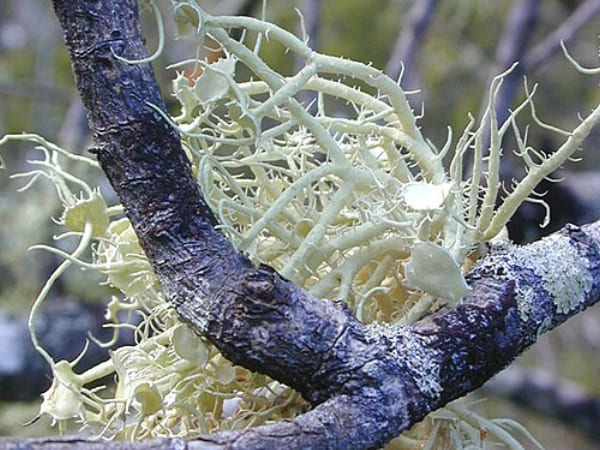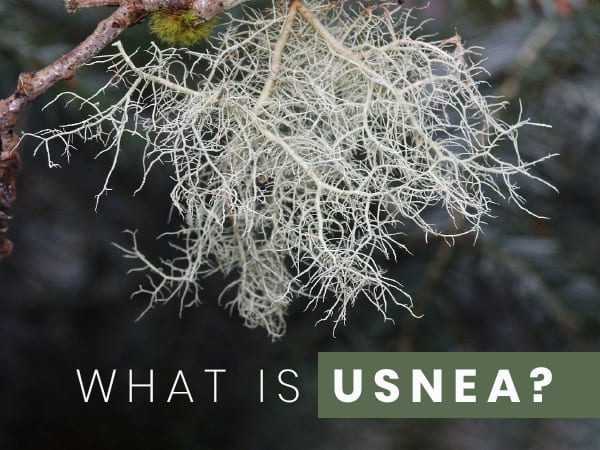Wellness
oi-Neha Ghosh
on July 28, 2020
If you have ever gone on a forest trek, you must have probably noticed white, cream or pale green-coloured strands like hair growing on the bark of trees, bushes, rocks and soil. This is called usnea, also known as old man’s beard or beard lichen due to its hairy appearance. Usnea grows all over the world and it belongs to the family Parmeliaceae.
What Is Usnea? [1], [2], [3]
Usnea is a type of lichen, a composite organism consisting of an alga and a fungus that grow together. The fungus gives structure, mass and protection from the elements, while the alga provides nutrients to help both of them survive.
Usnea has been used in Traditional Chinese Medicine (TCM), Traditional Indian Medicine (TIM), homeopathic and western medical herbal medicine for the treatment of infections and diseases.
Usnea contains metabolites, polysaccharides, fatty acids, phenolic acids, flavonoids, terpenes, sterols, depsides, depsidones, and benzofurans. Usnic acid, polyphenols, and depsides, the main active compounds in usnea possess antibacterial, antifungal, analgesic and anti-inflammatory properties.
Other compounds in usnea also exhibit antibacterial, antifungal, antiviral, antioxidant and anti-tumour activities which are said to offer a range of health benefits. A few of these benefits have limited research and further research is needed.

Health Benefits Of Usnea
1. May aid in weight loss
Usnea is rich in usnic acid, which is used as a popular ingredient in weight loss supplements. Studies have shown that usnic acid increases metabolic rate which is believed to promote weight loss. However, the side effects of it have been reported which may cause liver damage and even death [4], [5]. Therefore, it is recommended to consult a doctor before you consume these supplements.

2. May help heal wounds
Test-tube studies have shown that usnic acid can aid in the treatment of burn wounds. It exhibits antimicrobial activity against infection-causing bacteria that help in accelerating the wound healing process [6], [7]. However, more research is needed to understand the safe use of usnic acid for infected wounds.
Study reports also show that usnic acid has the ability to fight against Staphylococcus aureus bacteria, which are responsible for skin infections [8].
 Coxsackievirus Infection: Causes, Symptoms, Risk Factors, Treatments And Prevention
Coxsackievirus Infection: Causes, Symptoms, Risk Factors, Treatments And Prevention

3. May manage cancer
Studies have shown that the compounds in usnea have anti-cancer and anti-proliferative agents that may help stop the growth of cancer cells [9].
A 2010 study showed the effect of usnic acid against human cancer cell lines, the breast cancer cell line T-47D and the pancreatic cancer cell line Capan-2. The results showed that usnic acid had the potent ability to stop the growth and spread of these cancer cell lines [10].
Although the results look promising, further research is required.

Side Effects Of Usnea
When taken orally, usnea can be toxic and has been linked to several side effects such as acute liver failure, and in some cases, even death [11], [12].
Children, pregnant and breastfeeding women should avoid usnea.
The doses of usnea can vary between supplements. Therefore, you should take caution and consult a doctor before consuming usnea.
 10 FAQs About Waldenstrom Macroglobulinemia (Cancer Of The White Blood Cells)
10 FAQs About Waldenstrom Macroglobulinemia (Cancer Of The White Blood Cells)
To Conclude…
Usnea has been used to cure many ailments and though it is said to have many health benefits, very few are backed by scientific research; further research is needed to prove the efficacy of usnea. In addition, studies have shown that oral consumption of usnea can lead to potentially harmful effects. So, it is necessary to consult a doctor before you consume usnea in the form of supplements, tinctures or teas.
Common FAQs
Q. What is usnea used for?
A. Usnea has been used as a traditional medicine for curing ailments such as sore throat, bronchitis, cold and flu, infection and indigestion.
Q. Is usnea the same as Spanish moss?
A. No. Usnea is not the same as Spanish moss, but it looks similar to it.
GET THE BEST BOLDSKY STORIES!
Allow Notifications
You have already subscribed
Source:










